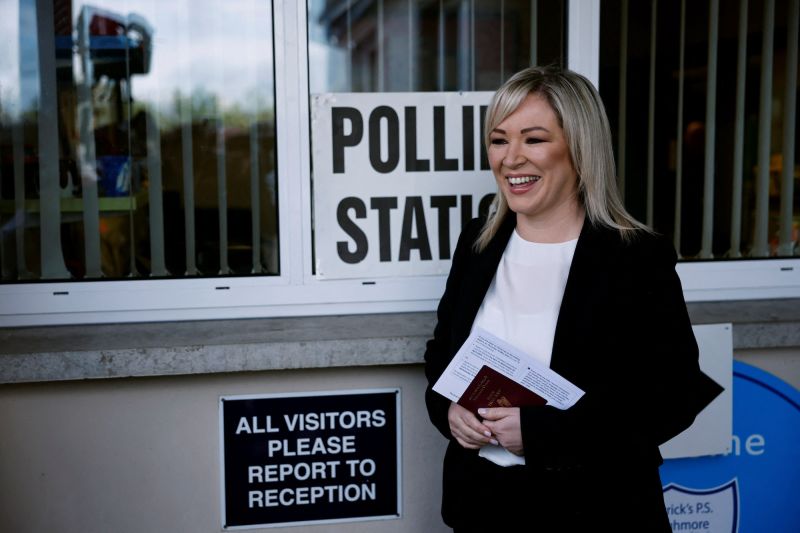Irish nationalists Sinn Fein followed up last year’s historic Northern Ireland Assembly victory by overtaking their unionist rivals by a wide margin in council elections on Saturday to become the biggest party at local level for the first time.
It is the latest political milestone for the former political wing of the Irish Republican Army (IRA) who want to leave the United Kingdom and form a united Ireland.
The left-wing party also comfortably leads opinion polls in the Republic of Ireland ahead of national elections due in 2025.
Sinn Fein’s share of the vote jumped almost 8 points to 31% and it won 144 of the 462 seats up for grabs, up 39% on the 2019 result. The Democratic Unionist Party (DUP), until last year the biggest party at local and regional level, held steady on 122 seats with 23% of the vote.
“Historic change is happening, and Sinn Fein is leading that change right across Ireland,” the party’s leader in Northern Ireland Michelle O’Neill said, telling the DUP that voters wanted them to end a 15-month boycott of the regional assembly.
The DUP had pitched the elections as a chance to bolster its call for further concessions from Britain on Northern Irish post-Brexit trade – the reason for its boycott – and said the results were a “strong mandate” from the unionist community.
Sinn Fein’s success came at the expense of more middle ground nationalist and unionist parties.
The cross-community Alliance Party made more limited gains than expected while the small, hardline Traditional Unionist Voice – which has put pressure on the DUP over the post-Brexit trade checks many unionists feel undermines their place in the UK – failed to repeat the surge in their vote at regional level.
“We want the (British) government to deliver on the commitments they have given to protect Northern Ireland’s place within the United Kingdom and I hope to see progress in the next few weeks,” DUP leader Jeffrey Donaldson told Reuters.
“You can’t dispense with unionists, you can’t dispense with the DUP. Unionism won’t be pushed to the side.”
The poll also marked the first time a Black person was elected to office in Northern Ireland, with Maasai woman Lilian Seenoi-Bar winning a seat for the nationalist SDLP.
